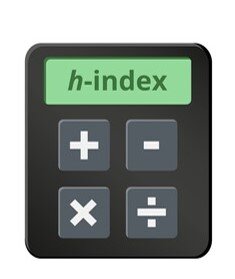مؤشر استشهادات المقالات


یُعد مؤشر استشهادات المقالات أداه قویه تتیح للباحثین والأکادیمیین تحلیل وتتبع علاقات الاستشهاد بین المقالات والوثائق. یوفر فهرسه الاستشهادات نظره شامله على المشهد العلمی، مما یسمح للباحثین بالتنقل عبر شبکه المعرفه المترابطه. تسهّل مؤشرات الاستشهاد العثور على المقالات المؤثره، وتتبع تطور الأفکار البحثیه، وتقییم تأثیر وجوده الدراسات. تلعب مؤشرات الاستشهاد دوراً أساسیاً فی البحث الأکادیمی، حیث تساعد فی مراجعات الأدبیات، وتحدید الفجوات المعرفیه، و تعزیز التعاون بین التخصصات المختلفه.

تتوفر عده أنواع من مؤشرات الاستشهاد، کل منها یخدم تخصصات أکادیمیه محدده:
The Science Citation Index (SCI) | للعلوم الطبیعیه والهندسه والطب. |
The Social Sciences Citation Index (SSCI) | لعلم النفس، وعلم الاجتماع، والاقتصاد. |
The Arts & Humanities Citation Index (AHCI) | للأدب، والفلسفه، والتاریخ. |
تخدم مؤشرات الاستشهاد عده أغراض فی البحث الأکادیمی، منها:
تمکین الباحثین من تحدید المقالات والمؤلفین المؤثرین عبر تحلیل أنماط الاستشهاد وأعداد الاستشهادات.
تتبع شبکات الاستشهاد لفهم اتجاهات البحث، وتحدید المساهمین الرئیسیین، وفهم تأثیر الأعمال البحثیه ضمن مجال معین.
المساهمه فی تقییم جوده وأهمیه الأبحاث من خلال النظر فی عدد الاستشهادات التی تلقاها کل مقال.
استخدام تحلیل الاستشهادات لتقییم تأثیر الأبحاث الخاصه بالباحث نفسه، وتحدید المتعاونین المحتملین، واتخاذ قرارات مدروسه بخصوص فرص النشر والتمویل.


یُعتبر Google Scholar مؤشراً شهیراً للاستشهادات، حیث یوفر للأکادیمیین مکتبه ضخمه من الأدبیات العلمیه. یمکن للمستخدمین من خلاله البحث عن المنشورات، ومتابعه الاستشهادات، وحساب مؤشرات مثل مؤشر h-index.
یستطیع الباحثون الاستفاده من Google Scholar لاکتشاف المقالات ذات الصله، والوصول إلى النصوص الکامله، واستکشاف شبکات الاستشهاد. کما تتیح میزات البحث المتقدم والإعدادات الشخصیه للباحثین تخصیص عملیات البحث واستقبال تنبیهات بالاستشهادات لمقالات أو مؤلفین معینین.
تُعد الواجهه البسیطه والتغطیه الواسعه لـ Google Scholar من الأسباب التی تجعله مورداً لا غنى عنه للباحثین المبتدئین والمحترفین على حد سواء.


تُعد مؤشرات الاستشهاد أدوات حیویه لتقییم تأثیر البحث العلمی لأنها توفر مقاییس کمیه.
یمکن للباحثین معرفه عدد الاستشهادات التی تلقاها مقال معین، وهی مؤشرات على أهمیته داخل المجتمع الأکادیمی. کما تساعد مؤشرات مثل h-index، التی تأخذ فی الاعتبار عدد المنشورات وعدد الاستشهادات، فی تقییم إنتاجیه الباحث وتأثیره العلمی.
مؤشر آخر شائع الاستخدام هو عامل تأثیر المجله (Impact Factor)، الذی یقیس متوسط عدد الاستشهادات التی تحصل علیها المقالات المنشوره فی مجله معینه.
رغم أن هذه المقاییس تقدم رؤى حول تأثیر البحث، إلا أن لها بعض القیود ویجب تفسیرها بحذر.
أکادیمیه سیتا (SITA Academy)
فی أکادیمیه سیتا، نقدم لک دعماً مخصصاً لمساعدتک فی اختیار المجله الأنسب لنشر مقالاتک العلمیه. فریق خبرائنا سیرشدک خلال عملیه الاختیار، لضمان وصول أبحاثک إلى الجمهور المناسب، مما یزید من وضوحها وتأثیرها الأکادیمی.
یمکنک الوثوق بأکادیمیه سیتا فی تزویدک بالمعرفه والرؤى التی تحتاجها لاتخاذ قرارات مدروسه تعزز من الاعتراف بأعمالک العلمیه.
ابدأ رحلتک معنا الیوم واکتشف الإمکانات الکامله لنشر أبحاثک الأکادیمیه.

إذا کان لدیک أی أسئله، استفسارات، أو ترغب فی معرفه المزید عن خدماتنا، فلا تتردد فی التواصل معنا. فریقنا المخصص مستعد لمساعدتک.